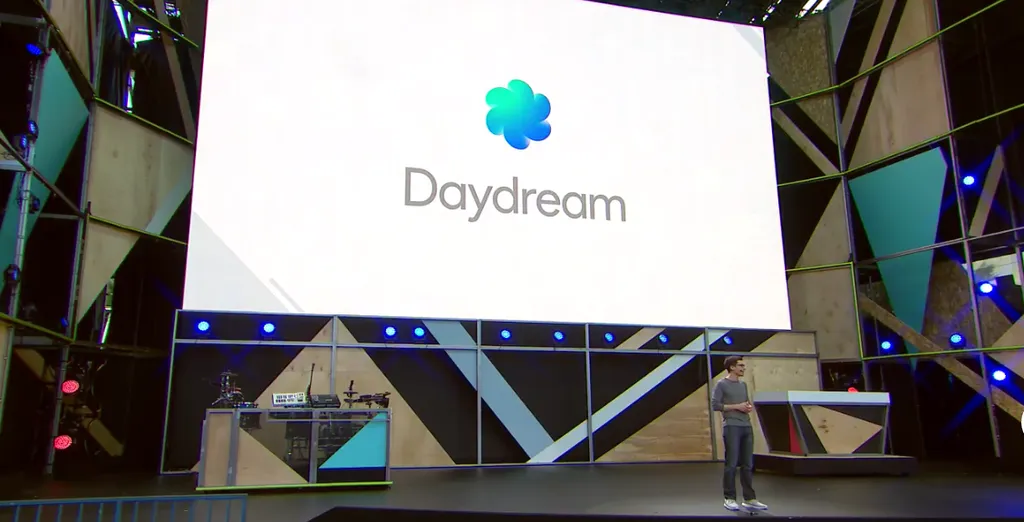Google Cardboard may be outmatched by the company’s new Daydream platform, but it was clearly instrumental in its creation.
Last weekend saw Clay Bavor, the company’s VP of VR, tweet out an image of one of the first prototypes for the Daydream controller, which is a simplistic motion controller that’s not too far off something like a Wii Remote. Unsurprisingly, the controller was made out of cardboard, and looks like it has space to house a smartphone, with markings for the buttons that are now present on the first official Daydream controller that was seen at least month’s I/O developer conference.
One of the first Daydream controller prototypes was clad in cardboard. pic.twitter.com/zyeWuQbCm7
— Clay Bavor (@claybavor) June 5, 2016
Perhaps there was a time when the company simply planned to launch a Cardboard controller?
Google has since simplified this concept even more so with a paper template that you can print off and cover your phone with to simulate the controller now. The makeshift nature of the device is obviously a step down from the position-tracked offerings in the Vive wand, Oculus Touch and PlayStation VR, but still a marked improvement on other forms of control for mobile VR, which are mainly limited to Bluetooth gamepads if not on-board inputs.
We know that Google itself will be making one of these Daydream controllers along with a Daydream headset, but other companies are yet to reveal if they’ll be offering their own take on the design specifications. What we do know is that a wide range of phone makers will be producing Daydream ready phones that meet a different set of specs, with rollouts starting towards the end of this year.
Through the combination of Daydream approved headsets, phones and controllers Google is hoping to create a unified mobile VR ecosystem in which every consumer will have access to the same type of content, much in the way that Oculus and HTC are highlight VR ready PCs for high-end HMDs. If it succeeds then the potential for growth in the VR industry will be massive; high-profile smartphone makers like HTC and even Samsung have agreed to make phones that meet the specs, so there’s a good chance people will be picking up VR ready phones without even realising it.






























